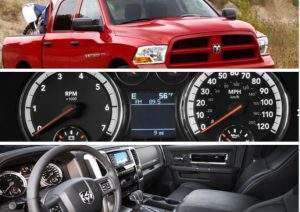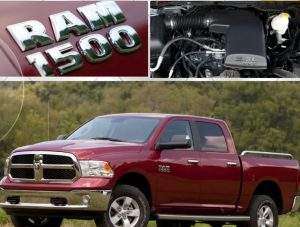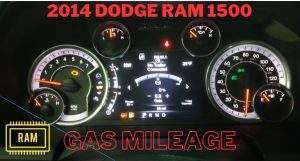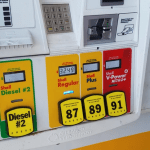Are you currently considering the purchase of a heavy-duty truck? The Ford F350 7.3 gas might be on your list. One of the most important considerations for any truck buyer is fuel economy. In this article, we’ll take a deep dive into the Ford F350 7.3 gas MPG to help you make an informed decision.
Ford F350 7.3 Gas MPG: What You Need to Know
The Ford F350 7.3 gas is powered by a 7.3-liter V8 engine that produces 430 horsepower and 475 lb-ft of torque. This particular engine is matched with a 10-speed automatic transmission and is capable of hauling a maximum weight of 21,000 pounds.
While the EPA’s fuel efficiency rating for the Ford F350 7.3 gas engine is 12 MPG, actual gas mileage may vary depending on several factors, such as those discussed above. Many owners report that their F350 achieves around 11-16 MPG on average 13.1.

However, some drivers have reported achieving as much as 16 MPG under certain driving conditions, such as highway driving at a steady speed.
It’s important to note that your actual gas mileage may vary depending on how and where you drive, as well as how well you maintain your vehicle.
Factors That Affect Ford F350 7.3 Gas MPG
While the EPA ratings give us a good idea of what to expect from the F350 7.3 gas, there are several factors that can affect real-world fuel economy.
i. Engine Size and Power
The larger the engine size and power output of your vehicle, the more fuel it will consume. The Ford F350’s 7.3-liter gas engine is one of the largest and most powerful available, so it’s not surprising that it has a relatively low fuel efficiency rating.
ii. Vehicle Weight
The weight of your truck can also impact fuel efficiency. The heavier your F350, the more energy it will take to move it, resulting in lower MPG.
iii. Driving Habits
Your driving habits can have a significant impact on fuel efficiency. Aggressive driving, such as speeding, rapid acceleration, and hard braking, can reduce MPG. Conversely, driving at a steady speed and avoiding sudden changes in speed can improve fuel efficiency.
iv. Terrain and Weather
The terrain and weather conditions you drive in can also impact fuel efficiency. Driving in hilly or mountainous terrain will require more fuel than driving on flat roads.
Similarly, cold weather can decrease fuel efficiency due to increased engine warm-up times and the use of accessories like the heater.
v. Maintenance
Regular maintenance is essential for optimal fuel efficiency. Poorly maintained vehicles may have dirty air filters, low tire pressure, or faulty oxygen sensors, all of which can negatively impact MPG.
Tips for Maximizing Ford F350 7.3 Gas MPG
While some factors that affect fuel economy are out of your control, there are several things you can do to help maximize the efficiency of your F350 7.3 gas.
Drive Smoothly
As mentioned earlier, smooth and steady driving can help improve fuel economy. Avoid rapid acceleration and heavy braking, and try to maintain a consistent speed whenever possible.
Remove Excess Weight
The more weight your F350 7.3 gas is carrying, the harder the engine has to work and the more fuel it will consume. Remove any unnecessary weight from your truck to help improve fuel efficiency.
Check Your Tire Pressure
Underinflated tires can decrease fuel efficiency, so be sure to check your tire pressure regularly and inflate them to the recommended level.
Avoid Idling
Idling can consume a significant amount of fuel, so avoid leaving your engine running when you’re not driving. If you need to stop for an extended period of time, turn off your engine to save fuel.
Service the Vehicle Regularly
Regular maintenance can improve your F350’s fuel efficiency by keeping it running smoothly. Make sure to service your vehicle according to the manufacturer’s recommended schedule.
Is the Ford F350 7.3 Gas Engine Worth it for Its Fuel Efficiency?
While the Ford F350 7.3 gas engine may not be the most fuel-efficient option on the market, it offers unparalleled towing and hauling capabilities. If you’re in need of a powerful workhorse, the F350 may be worth the tradeoff in fuel efficiency.
Additionally, taking steps to improve your F350’s fuel efficiency can help mitigate its impact on your wallet.
Conclusion
In conclusion, the Ford F350 with a 7.3-liter gas engine has a combined fuel efficiency rating of 12 MPG according to the EPA. However, actual gas mileage may vary depending on several factors, such as engine size, vehicle weight, driving habits, terrain, and maintenance.
Taking steps to improve your F350’s fuel efficiency, such as keeping your tires inflated and avoiding aggressive driving habits, can help mitigate the impact on your wallet. Ultimately, whether the F350 is worth it for its fuel efficiency depends on your individual needs and priorities.
Frequently Asked Questions (FAQs)
- Is the Ford F350 7.3 gas-powered truck fuel-efficient?
The Ford F350 7.3 gas-powered truck is not the most fuel-efficient truck on the market. However, it is still a reliable and powerful option for those in need of a heavy-duty truck.
- What factors affect the fuel efficiency of the Ford F350 7.3 gas-powered truck?
Several factors can affect the fuel efficiency of the Ford F350 7.3 gas-powered truck, including driving habits, load weight, terrain and road conditions, and maintenance.
- How can I improve the fuel efficiency of my Ford F350 7.3 gas-powered truck?
You can improve the fuel efficiency of your Ford F350 7.3 gas-powered truck by driving conservatively, removing excess weight, keeping tires inflated, using cruise control, and performing regular maintenance.
- Is the Ford F350 7.3 gas-powered truck worth buying?
The Ford F350 7.3 gas-powered truck is a reliable and powerful option for those in need of a heavy-duty truck. However, whether it is worth buying depends on your specific needs and preferences. It’s important to consider factors such as towing capacity, payload, fuel economy, and price when making your decision.








